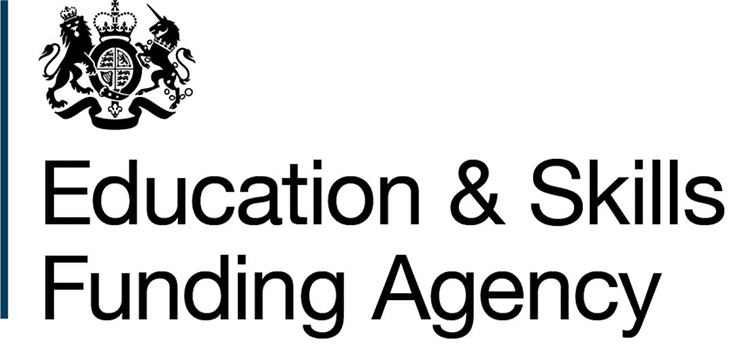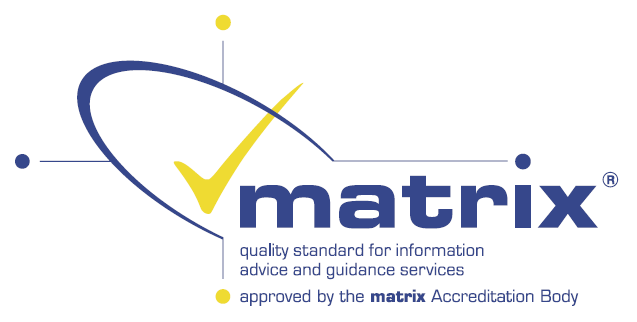Teacher Training In-Service (Lifelong Learning)
Education
Course ID: 174925
Course Year: 24/25
Course Details
- 2 year, part-time course.
- You'll complete written and practical work to enhance your skill set.
- We cover all aspects of teaching practice.
- Earn an award validated by the University of Huddersfield.
- Boost your confidence in planning, teaching + learning, and working with learners and professionals.
- Access support and guidance from our highly qualified teaching team.
- Study in a safe, friendly and respectful environment.
What to expect from the course
The course aims to equip students with the skills, knowledge and understanding necessary, not only to manage a variety of learning situations but also to contribute to the wider activities of educational or training organisations. Students will gain practical experience of learning and teaching alongside other professionals. They will also gain confidence in planning teaching and learning, and in working with learners and other professionals.
During the course, students can focus on their particular subject specialist area. Students will learn to reflect on current ideas about education and training, and creatively explore the professional opportunities open to them. Students will be taught in small groups through a wide range of teaching and learning methods. Each student will have a personal tutor who will support their ongoing development during their studies.
The course is validated by the University of Huddersfield and leads to a University of Huddersfield award. By enrolling on this programme, students will have access to the University of Huddersfield's extensive professional and academic network which feeds into course design and delivery.
Upon successful completion of this course, students are eligible to proceed, following a process of professional formation through the Society for Education and Training to gain Qualified Teacher Learning and Skills (QTLS) status. This is the full professional status for teachers in the Lifelong Learning Sector.
The programme handbook for this course is available to applicants online:
University of Huddersfield Course Handbook – Lifelong Learning (2023-24)
Modules studied:
Research Informed Teaching, Learning and Assessment
This module aims to develop your understanding of how people learn in the Lifelong Learning sector and of the role of assessment in enabling learning and achievement. It introduces theories and principles of learning and assessment and develops your ability to apply research evidence in designing effective learning and assessment strategies and materials. It seeks to develop positive approaches to the management of group and individual behaviours and promotes an inclusive approach to teaching, learning and assessment. It introduces the role of key transferable skills and the ways in which people learn English, maths and digital skills. The module is assessed by means of a practical micro-teaching assignment and the design of an intervention, strategy, activity or resource, underpinned by an understanding of key principles of teaching, learning and assessment.
Becoming a Subject Specialist Teacher
This module reviews your practice as a trainee teacher. It explores your teaching values, knowledge of your subject specialism, and your knowledge and understanding of how you are learning to teach. You will have the opportunity to learn how to identify and respond to students' needs, and how to use suitable teaching, learning and assessment strategies to develop inclusive teaching and learning environments. You will have the chance to evaluate your teaching effectiveness and develop as a reflective practitioner as well as engage in personal and professional development planning, against the appropriate Professional Standards, to recognise and develop relevant subject specialist knowledge, behaviours and skills. This will include further development of English, maths and digital skills for you and your students.
Being a Subject Specialist Teacher
This module builds on previous generic and subject specialist development in two ways. Firstly, it contributes to your development of more advanced strategies and methods for promoting learning and, secondly, it involves a focus on specific specialist areas and the critical analysis subject specialist pedagogy. The module seeks to enhance your ability to reflect critically on, and to evaluate, teaching and learning; by recognising particular curriculum and professional challenges; and by enabling you to develop critical responses to these concerns in sophisticated, innovative and creative ways. Key learning activities of the module are practical teaching experience and the engagement with other specialists through collaborative practice. The module is assessed through a Teaching Portfolio and a Conference Paper dealing with teaching and learning in the specialist subject.
Policy and Professional Issues
This module will develop your understanding of policy and issues relating to professionalism in Lifelong Learning. You will have the opportunity to explore the impact of policy on professional practice and curriculum developments, drawing on appropriate evidence to evaluate professional practice and discuss possible improvements. You will also discuss key issues of professionalism in Lifelong Learning, including debates on reflective practice and a discussion of your own educational values and the extent to which these promote social justice.
How will I be taught?
The course is a two-year, part-time programme. In addition to attending lectures and tutorials, students develop the practical skills of teaching through their employment. They also have the opportunity to gain experience of learning and teaching alongside other professionals, with support from tutors, as a vehicle for their development.
During the course, students undertake project work such as developing new course materials. Academic work includes critically examining creativity in teaching, subject specialist related studies, quality and professional issues. Modules also allow students to explore particular areas of interest.
Students will be taught in small groups through a wide range of teaching and learning methods. Each student will have a personal tutor who will support their ongoing development during their studies.
As part of the course, students will complete a subject specialist module, which involves two days' attendance at the University of Huddersfield's Queensgate campus.
How will I be assessed?
The course is assessed through written assignments and practical assessment of teaching. The course is structured around modules which are based on different aspects of teachers' work, such as designing learning materials, assessing learners, and evaluating learning and teaching. Students are required to deliver a minimum of 50 hours of teaching per year which will be assessed by tutors and a subject specialist mentor.
Academic credit is gained by undertaking assignments and providing evidence of achievement. This allows students to explore topics that are of interest to them, which are relevant to both their working environment and career development. There is a wide range of assessment activity including the creation of resources to support learning, seminars, lectures and presentations.
Who is the course intended for?
This course is intended for those who want to teach or are currently teaching young people or adults. It helps students to develop the skills to play a full part in teaching and curriculum development.
Please note: this course will only run when it has a sufficient number of applicants.
Qualifications
The final qualification depends on the highest qualification you currently hold. Your pathway will be decided after enrolment.
The following qualifications are available:
• Certificate in Education
• Professional Graduate Certificate in Education
• Postgraduate Certificate in Education
• Postgraduate Diploma in Education
All qualifications above are awarded by the University of Huddersfield.Why study with us?
The course is a two year, part-time programme. As well as attending lectures and tutorials, students develop the practical skills of teaching through their employment. They also have the opportunity to gain experience of learning and teaching alongside other professionals, with support from tutors, as a vehicle for their development.
During the course, students undertake project work such as developing new course materials. Academic work includes critically examining creativity in teaching, subject specialist related studies, quality and professional issues. Modules also allow students to explore particular areas of interest.
Credit points may be used to progress to higher level courses such as the BA in Education and Professional Development or a Master’s degree.Student Benefits

Academy Bakery
The Academy Bakery is located on the Duke Street campus, producing a range of first class baked goods daily. These include artisan breads, patisserie and biscuits, as well as special occasion/novelty cakes by award-winning master-bakers. Students are offered a range of discounts throughout the year.
The Academy Bakery
Academy Hair and Beauty Salons
Duke Street is also home to The Academy Hair and Beauty salons. They offer generous student discounts on a wide range of hair and beauty treatments, at a fraction of high-street prices. These include styling, cutting, perming, highlights, facials, manicures, electrolysis and traditional and homeopathic massage.
The Academy Salons
Academy Restaurant
Duke Street campus is also home to the College’s Academy Restaurant. Often referred to by it’s customers as Liverpool’s hidden gem, the restaurant serves top class cuisine, at highly competitive prices. Food is expertly prepared by professional chef/tutors and young chefs in training and offers students a range of discounts at different times of the year.
The Academy Restaurant
Microsoft Office 365 - Free
When you become a student of the College you’ll receive full access to Microsoft Office 365. This allows you to install the software on your own computer and other devices at home, completely free of charge.

Onsite Sports Facilities/Fitness Suite
The college has excellent sports and fitness facilities at its Roscoe Street campus. Students pay a one-off membership fee for all year round usage of weekly supervised gym sessions, as well as access to a number of sporting clubs and events.
Career pathways
- All awards lead to a professional qualification for teaching in further education and sixth form colleges, adult education and a wide range of other training and educational settings. This course also provides a route to Qualified Teacher Learning and Skills (QTLS), the full professional status for teachers in Lifelong Learning (Education and Training).
Please note: this course does not confer Qualified Teacher Status (QTS) for those working or intending to work in schools, although it is currently possible for people with QTLS to obtain work in schools as a qualified teacher.
Past students have progressed to the BA in Education and Professional Development or Master’s level study.
We're here to help...
Contact us to discuss your application or find out more:
: 0151 252 3000: enquiry@liv-coll.ac.uk
Entry Requirements
Entry criteria varies depending on the highest qualification you currently hold.
Entry requirements are as follows:
• Certificate in Education applicants - students should have a qualification at level 3 or above in the area they teach (e.g. A- levels; HNC; HND; CGLI advanced; NVQ Level 3-4), and relevant work experience.
• Professional Graduate Certificate in Education applicants - students should hold a UK first degree or equivalent and relevant work experience, where appropriate to the subject. Students should also hold a qualification at level 3 or above in the subject area they teach in, if this is different from that of their degree.
• Postgraduate Certificate/Postgraduate Diploma in Education applicants - students should hold a UK first degree at 2:1 or above or equivalent, and relevant work experience, where appropriate to the subject. Students should also hold a qualification at level 3 or above in the subject area they teach in, if this is different from that of their degree.
• GCSE English language and mathematics (at grade 4 or equivalent) or level 2 equivalent.
If you are unsure of the entry requirements, or if you don't meet the criteria, please contact our Careers Advice and Guidance team who will be happy to help you find the best option for you. Email careersadvice@liv-coll.ac.uk or call 0151 252 3607.
Fees
This course is only available to learners aged 18 and over. Fees are payable by all students unless sponsored by an employer, but you may qualify for a student loan through Student Finance England towards the cost of your course and living costs. Find out more at https://www.gov.uk/student-finance, or contact our HE team at HEoffice@liv-coll.ac.uk.
Fee for24/25 is 4200.00
In future years we anticipate increasing this fee in line with the annual inflation level (capped at RPI All Items Excluding Mortgage Interest (RPIX)).







